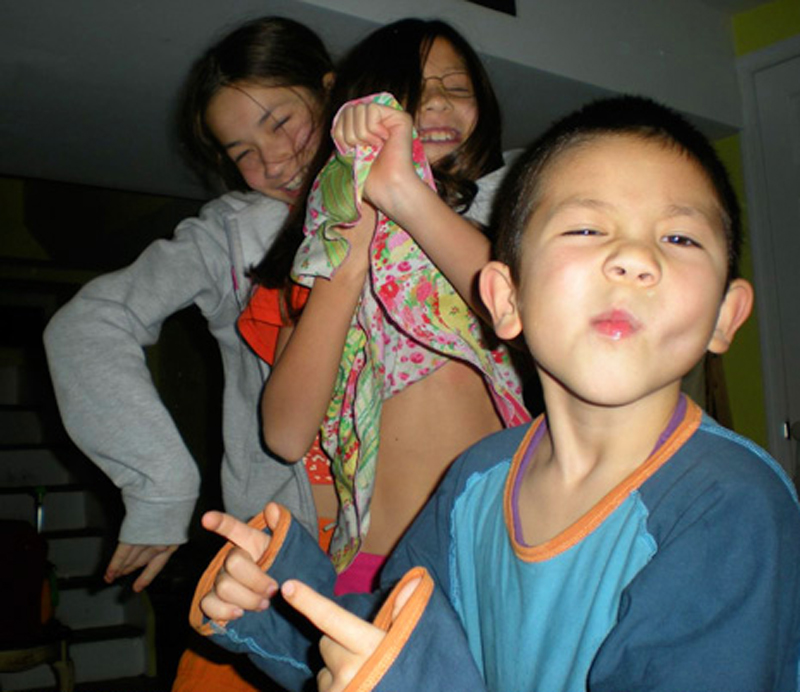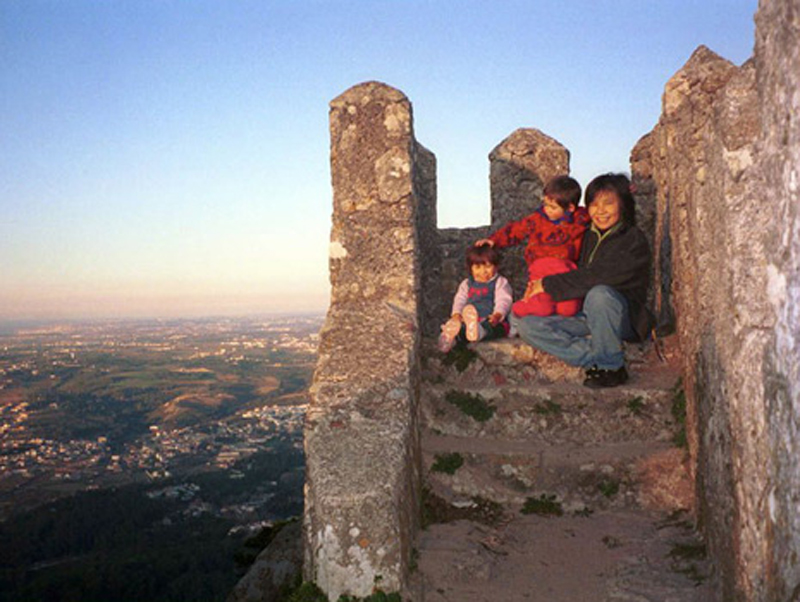A friend of mine sent me the Wall Street Journal article “Why Chinese Mothers Are Superior” a few weeks ago. It was sent to me, I assume, because I have a Chinese mother in my own house—the mother of my children. The article excerpts and promotes the book Battle Hymn of the Tiger Mother by Professor Amy Chua, and it was actually sent to me by a few different friends. It seems to have become the topic of much conversation, and I imagine it’s stirring up such a response among Americans because we are, of late, a bit insecure. To quote the book’s review in the New Yorker, “It’s just about impossible to pick up a newspaper these days—though who actually picks up a newspaper anymore?—without finding a story about the rise of the East.”
It’s stirring up such a response among Americans because we are, of late, a bit insecure.
My many years living in East Asia, my twenty years of marriage to a mainland Chinese, and our having three children, all make me a trained observer (and sometimes participant) in these matters. My wife—and I—exhibit some of the parenting behaviors Professor Chua describes. My kids are occasionally excoriated by their mother for failing to do well, or from me for failing to try hard enough, but both my wife and I tend to mix this with more American-style praise. And unlike the Chuas, my kids do have sleepovers, participate in school plays, study instruments other than the violin and piano, and do not get straight As in school (alas).
I cannot explain my wife’s fall from the standards of her cultural inheritance (I have certainly seen conforming variants among many other Chinese friends of ours), but I can perhaps explain my own inability to strictly follow the Chinese example.
In the early ’90s, I had a friend who was an assembler for a small computer manufacturer based in New York. The company assembled custom PCs out of parts supplied by various manufactures in Taiwan. Everyone in the company was Chinese. My friend was bright, friendly, and it turns out, a particle physicist who had come to this rather menial job after being laid off as a microwave technician when the US government halted construction of the massive Superconducting Super Collider project in Texas.
Not long after we became friends, he was diagnosed with cancer and subsequently died. He was not yet 30.
He lamented to me that he had missed out on youth and on life, only to fail, and now to die.
I clearly remember a conversation we had in which he described his youth and education as one intensive, unrelenting drive to be the best at everything, and that this driven and relentless existence had continued throughout his entire youth, education, and short career working on the Super Collider. He lamented to me that he had missed out on youth and on life, only to fail, and now to die.
I do think that we as Americans tend to be too soft on our kids, often praising them for things that are notably mediocre. Life is hard, and I think children should taste this on occasion. But life is also precious and fragile, and it should be cherished and enjoyed. I advocate doing nothing half way, but I also believe there are many paths, especially when it comes to happiness and the definition of success in life.
The primary flaw I see in the Chinese system—at least as applied in the context of life in America—is its rigidity. It insists on a single model for success.
The primary flaw I see in the Chinese system—at least as applied in the context of life in America—is its rigidity. It insists on a single model for success.
This aspect of the Chinese child-rearing code is, I think, a clearly traceable byproduct of their historical inheritance. For some 1,300 years—up until the collapse of the Qing Dynasty in 1905—success in China was measured by one purely academic achievement: passing the civil service examinations. This was the key to personal as well as family fortune. In theory—and often in practice—it was available to anyone who was smart enough and willing to work hard enough to actually pass it. If a family member passed the civil service exams, the family would benefit dramatically and continuously for the rest of that person’s life. The responsibility to succeed in the exam was not, therefore, ever really a choice made by an individual, but rather a burden placed on a youth by all of his relations.
There was no “plan B.” It was all or nothing. If you passed, your family was set on the path to wealth and comfort which, with judicious planning and the cultivation of hard work and education, could be carried forward for generations. On the other hand, if you failed, you and your entire family could well begin the descent into poverty and obscurity. Only by first passing through this singular and incredibly narrow gauntlet would an individual then finally be allowed to pursue any of his own interests. This striving and insanely hard work, this deferred enjoyment, and this focus on family success instead of personal pleasures, were all there in the life that my physicist friend had lived.
Our child rearing position remains this: Whatever you do, pursue it with all your heart, all your love, and all your power, but by all means do whatever you want.
The problem in America is that getting into, say, Harvard does not come with the same set of guarantees as passing the civil service exams did in pre-modern China, and America offers a much wider array of models for success. That is not to deny that the Chinese pattern of prolonged striving and single-minded focus on narrow definitions of achievement yields many positive outcomes. It’s just to say that my physicist friend, by his own reckoning, was not one, and this certainly influenced me when, two years later, I had my first child.
Our child rearing position remains this: Whatever you do, pursue it with all your heart, all your love, and all your power, but by all means do whatever you want.
I have no idea if my own children will benefit from the hybrid child raising strategy to which they have and continue to be subjected. Only time will tell.




Ask for help.
We are kind, thorough and ready when you are. You just need to ask.